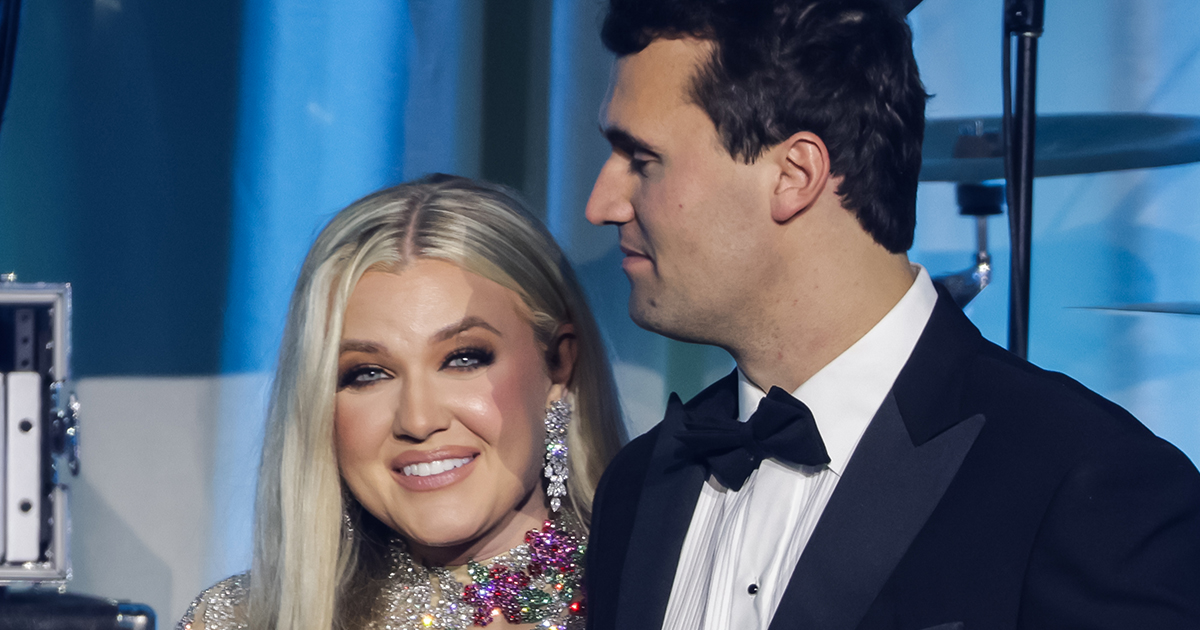In the fast-spinning world of digital media, a single headline can travel faster than fact.
Last week, millions of social media users shared a story claiming that Erika Kirk, the widow of late activist Charlie Kirk, had turned down a $60 million offer from Walt Disney Studios to produce a documentary about her husband’s legacy.
“Keep it! My husband is dead. Let him rest in peace,” the viral quote read — dramatic, heartfelt, and, as it turns out, entirely fabricated.

🔍 The Anatomy of a Lie
When the story first appeared, it had all the ingredients of virality: a grieving widow, a corporate giant, and a dollar figure too big to ignore. Within hours, clickbait sites and AI-driven news pages copied and repackaged it, drawing millions of impressions and thousands of comments praising Erika’s “integrity.”
But there was just one problem — none of it happened.
After days of verification, searches through official databases, press archives, and Disney’s public disclosures, no legitimate record of any such offer exists. No Hollywood Reporter coverage, no Variety scoop, no entertainment industry leaks.
And ABC News, the only verified outlet to have interviewed Erika since Charlie’s death, makes no mention of a deal — let alone a dramatic rejection.
💔 The Truth We Overlooked
The real Erika Kirk has indeed shown extraordinary courage since her husband’s death. Her heartfelt eulogies, especially the moment when she publicly forgave her husband’s killer, moved millions and even inspired actor Tim Allen, who credited her words with helping him forgive his own father’s murderer.

That’s real. That’s human.
And yet, it wasn’t enough for the internet. We wanted a richer story — richer in drama, in outrage, in fantasy. So someone, somewhere, wrote one.
🧠 The Viral Machine
Experts in digital misinformation describe these stories as “emotional click engines.”
“They mix truth and fiction just enough to bypass skepticism,” says media analyst Dr. Lena Ortiz of UCLA’s Disinformation Research Lab. “People share them not because they believe every word, but because the emotion feels true.”
In this case, the image of a widow rejecting corporate greed resonated deeply in an age of distrust toward big business and Hollywood spectacle. It didn’t matter that Erika Kirk never said it — the internet wanted her to.
🌎 Beyond the Headline

The real tragedy is how such fabrications distort not only public understanding, but also the memory of the people involved.
By turning Erika’s grief into a viral morality play, we risk forgetting the human beneath the headline — a mother, a believer, a woman trying to keep her family together under unbearable loss.
In a quiet statement through her spokesperson earlier this month, Erika said only:
“I have no comment on rumors. My focus remains on my children, our faith, and honoring Charlie’s memory in truth.”
✍️ A Lesson in Digital Responsibility
The internet loves heroes and villains — but truth rarely fits neatly into either role.
As readers, we owe it to those caught in the storm of public myth to pause, verify, and remember that sometimes, silence speaks louder than spectacle.
Because while a $60 million headline might sell clicks, truth — unpolished, unprofitable, and profoundly human — is worth infinitely more.